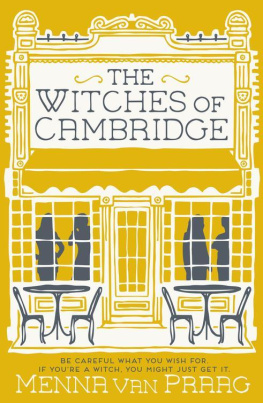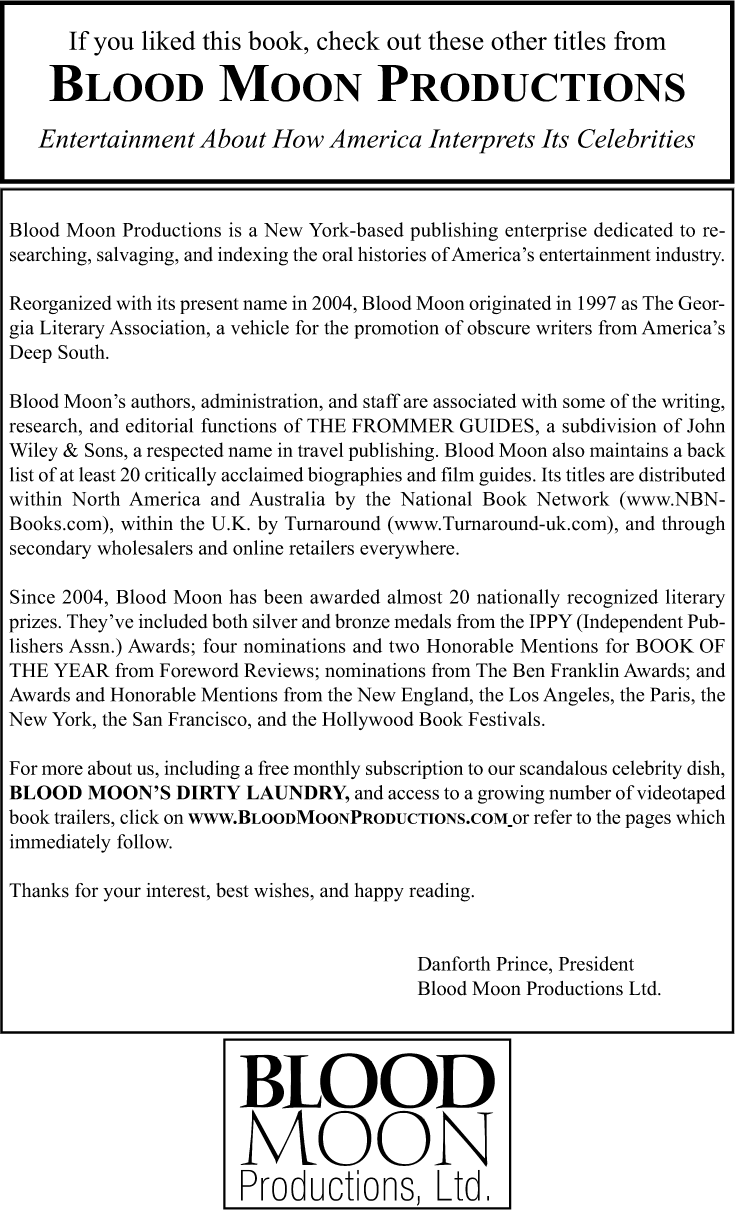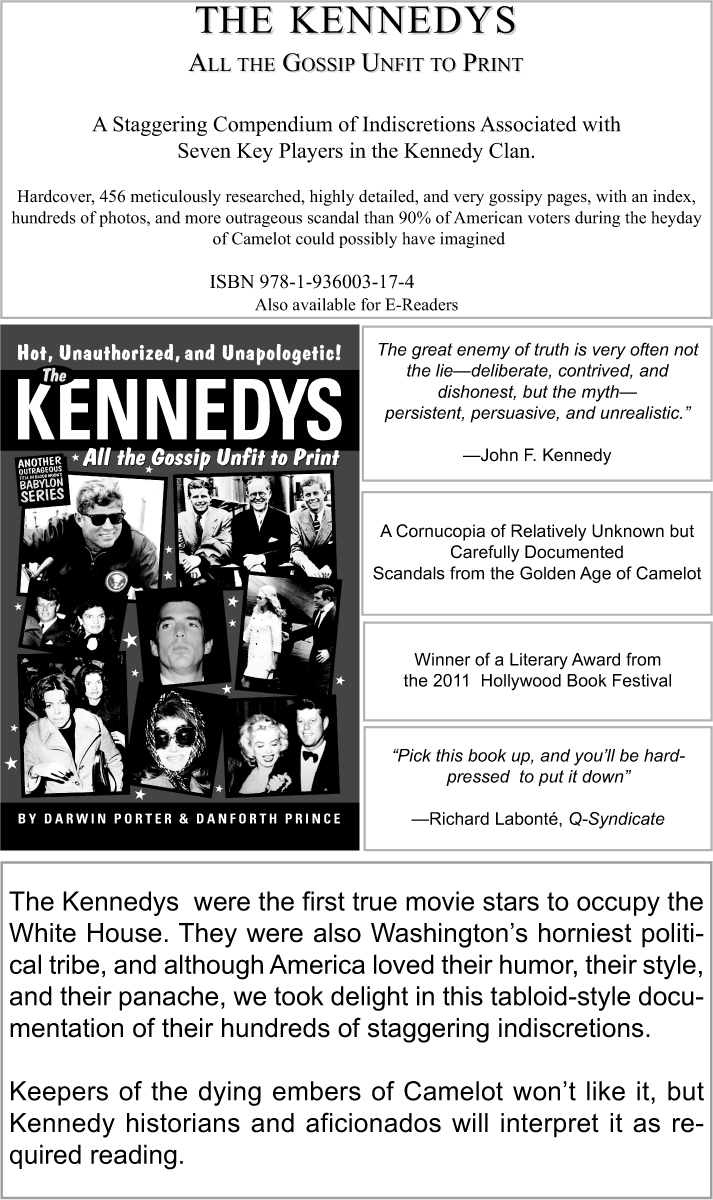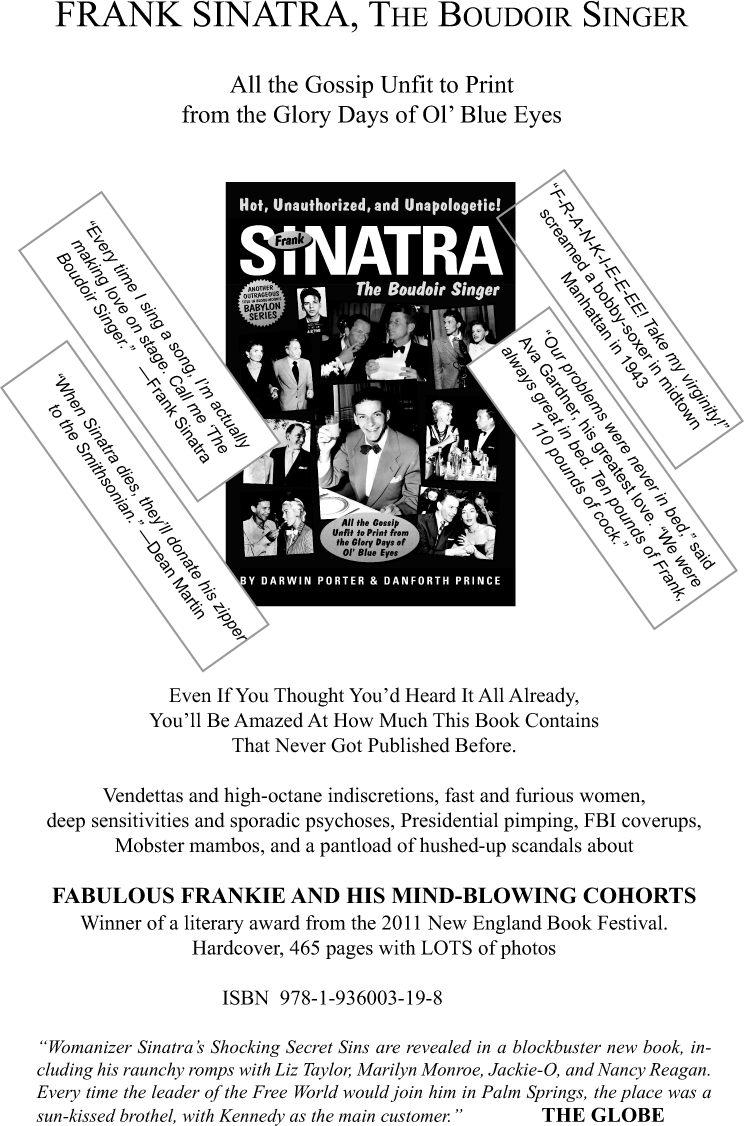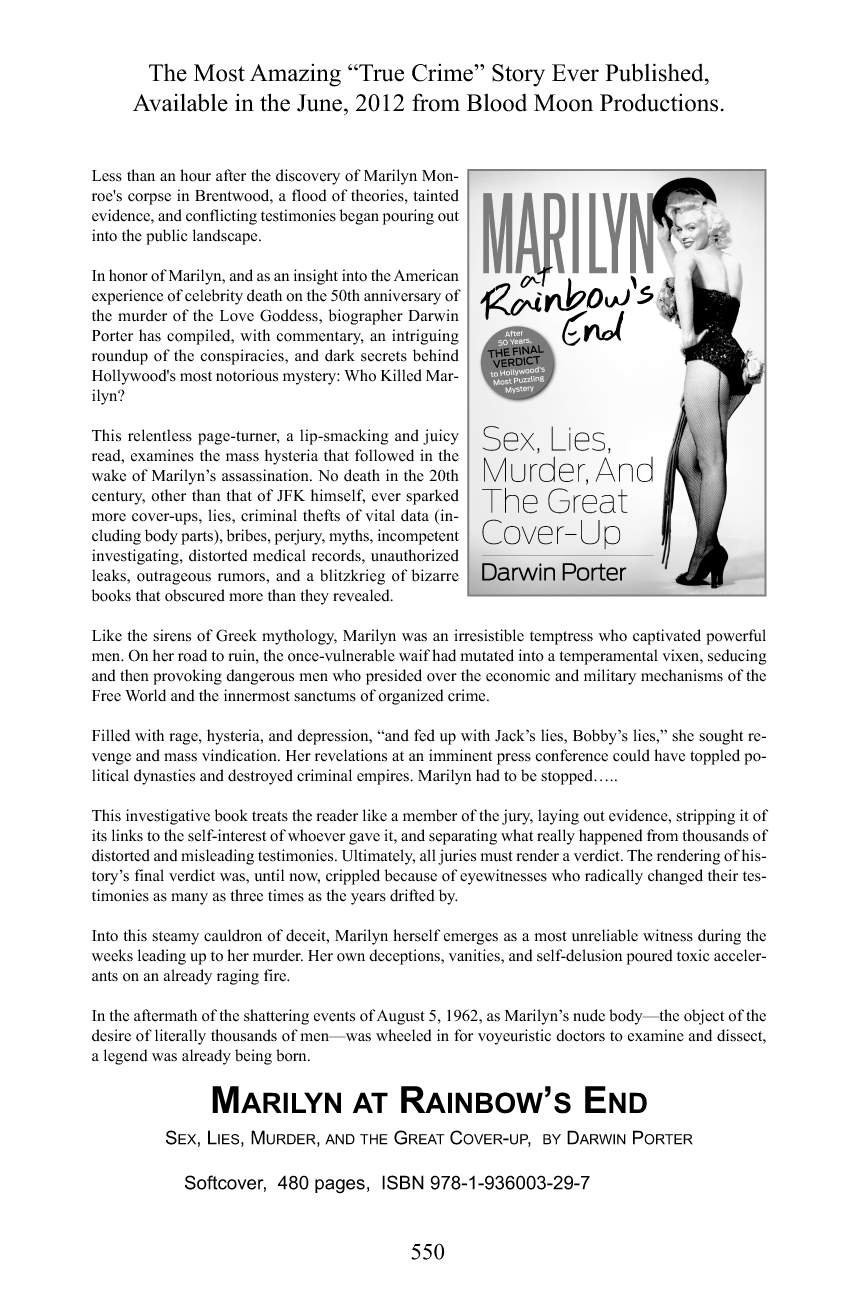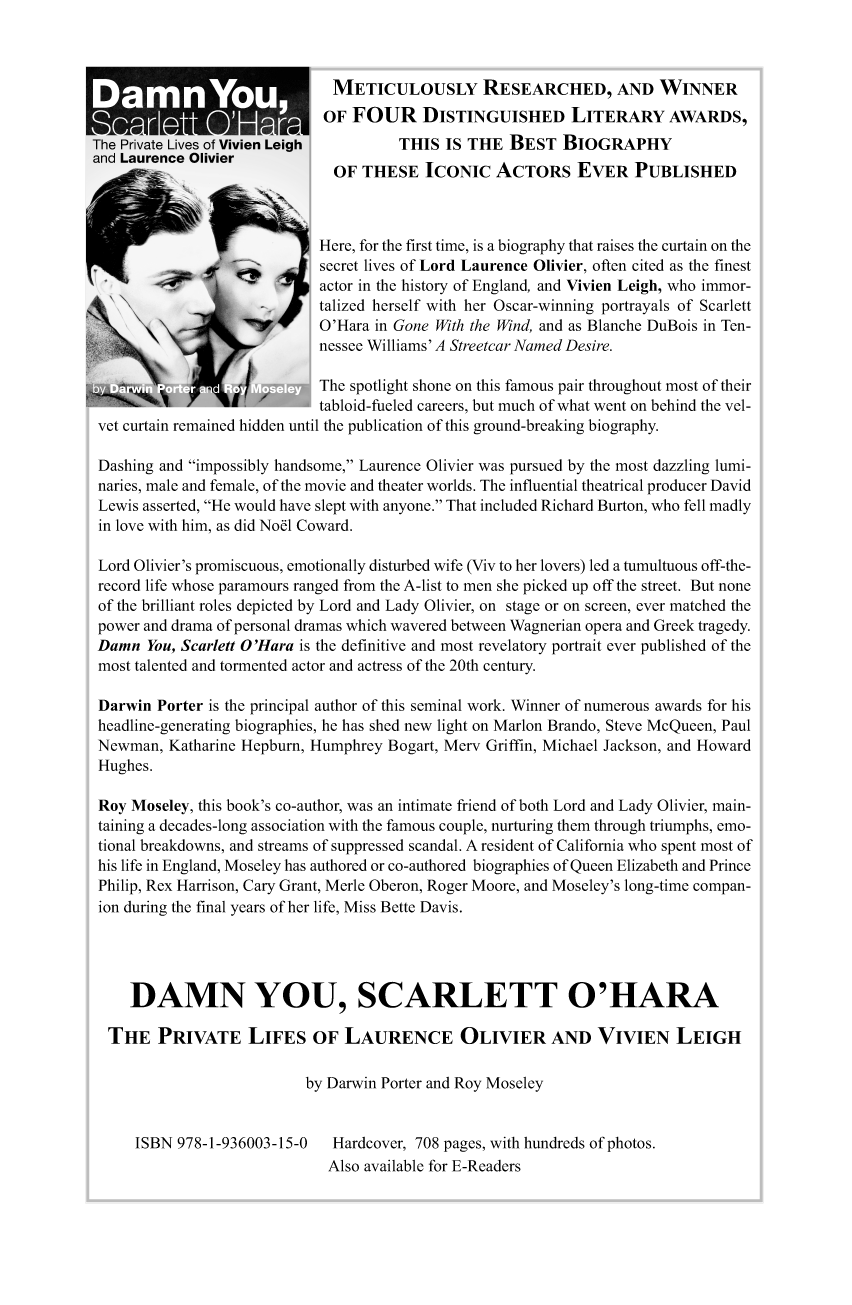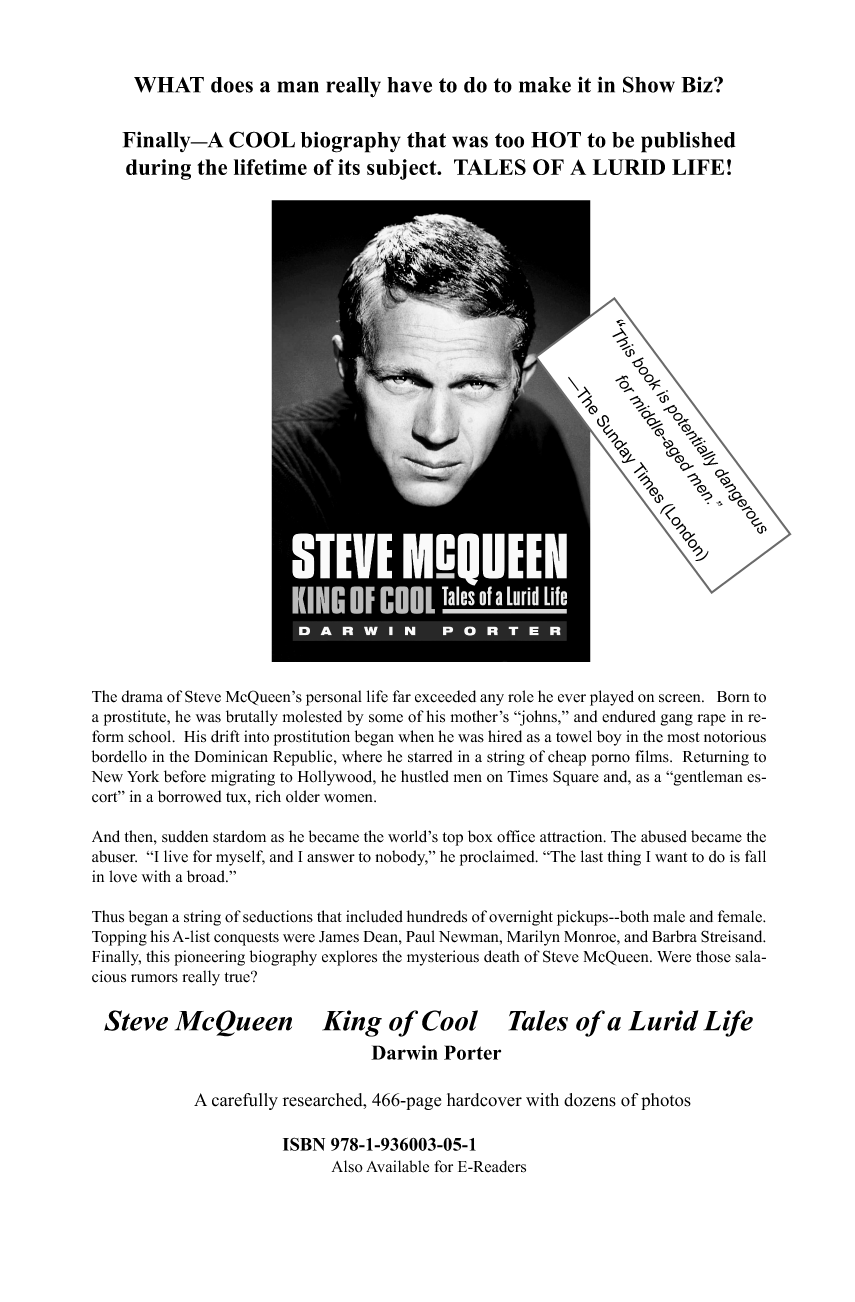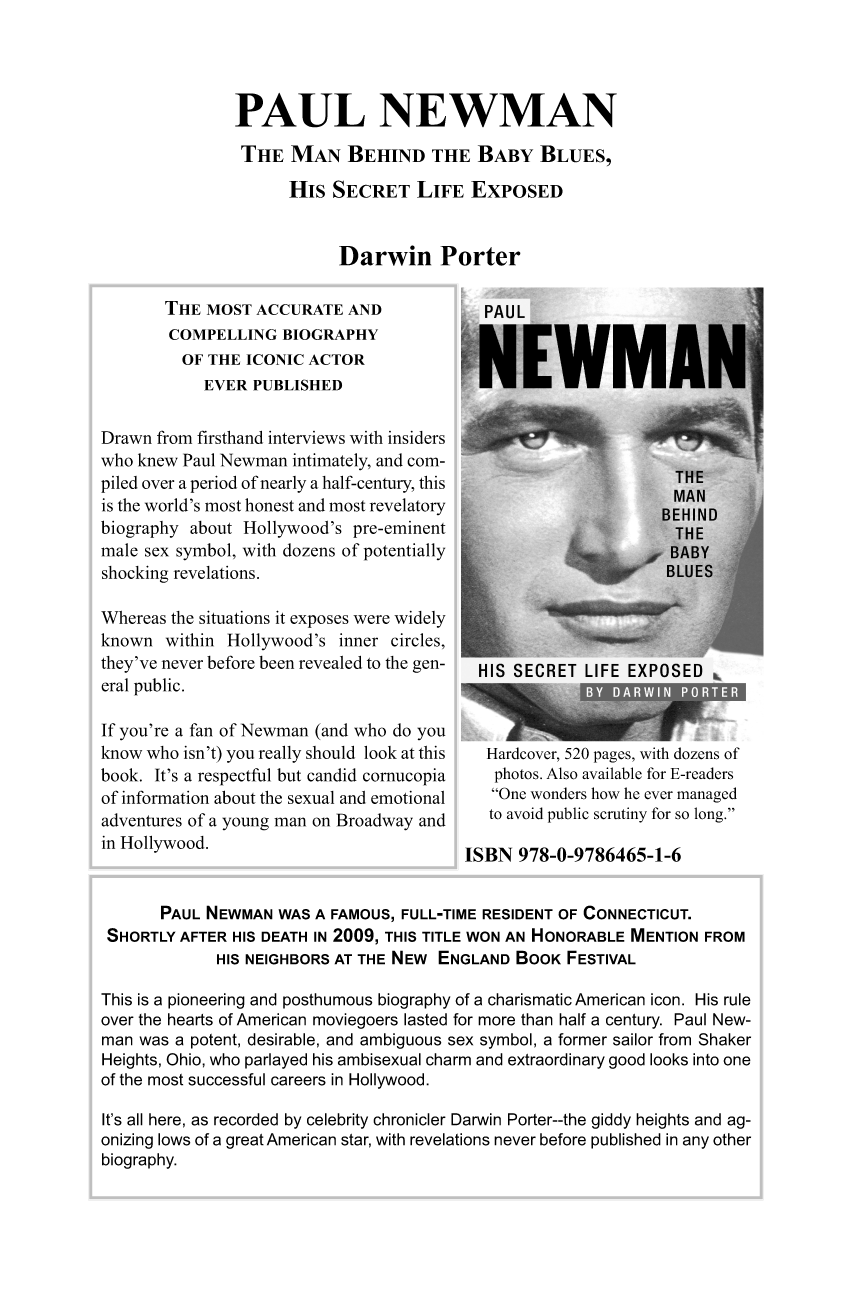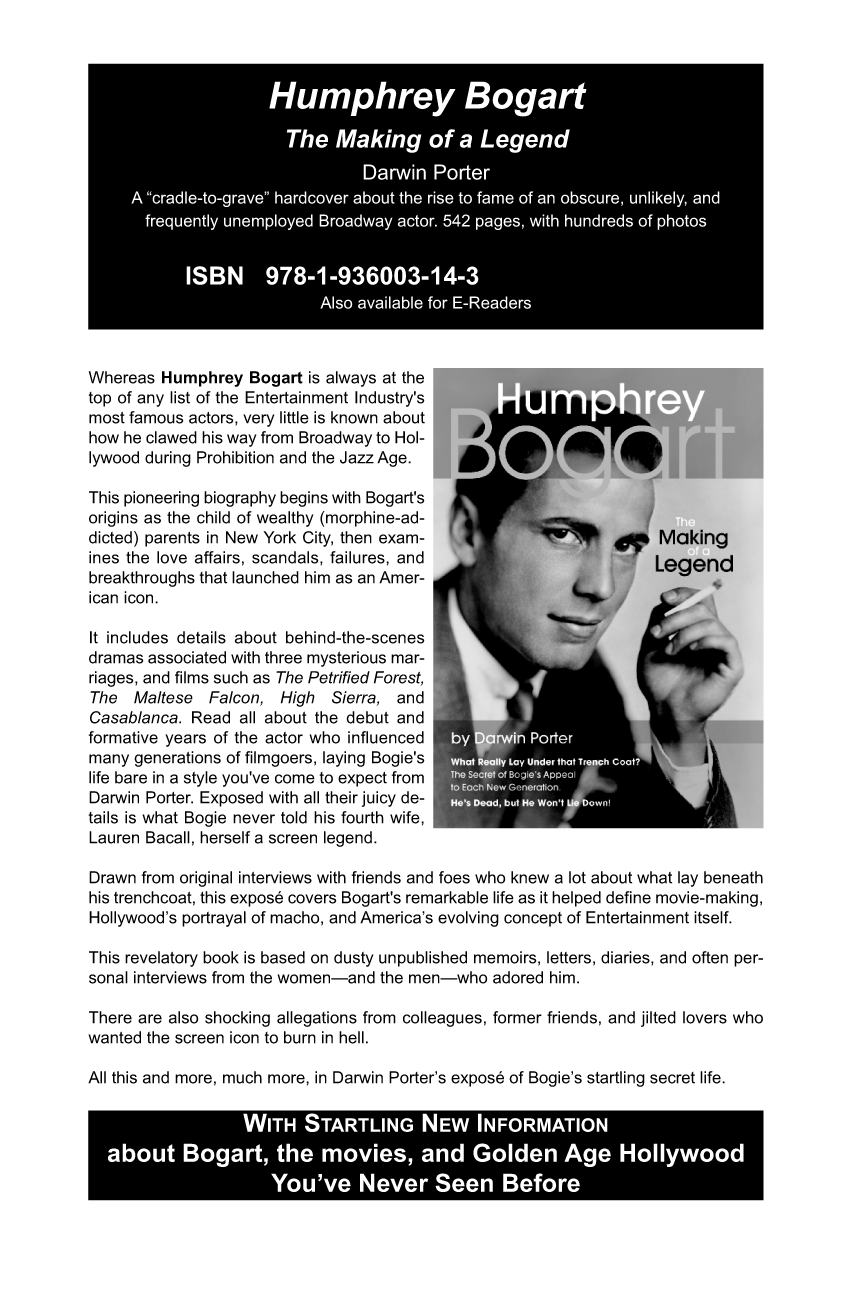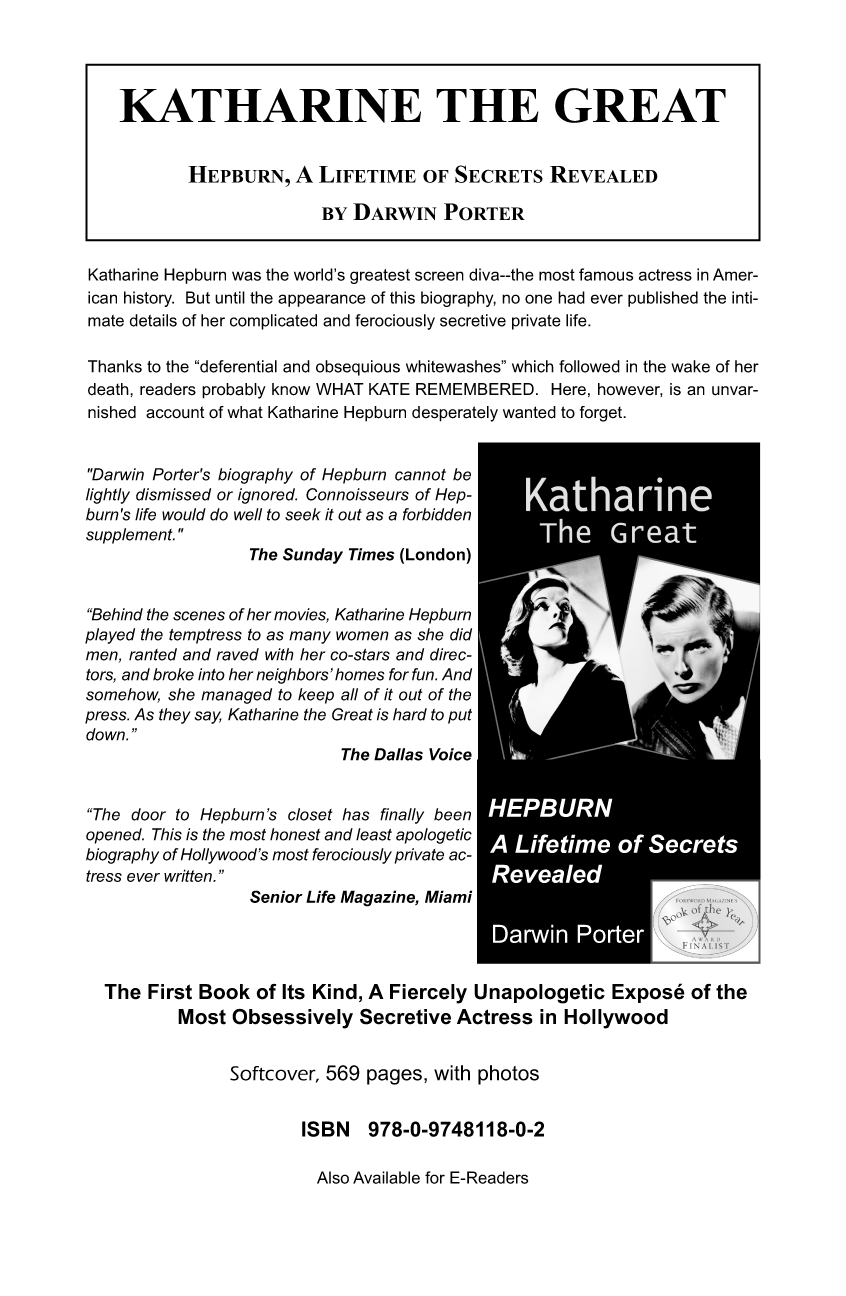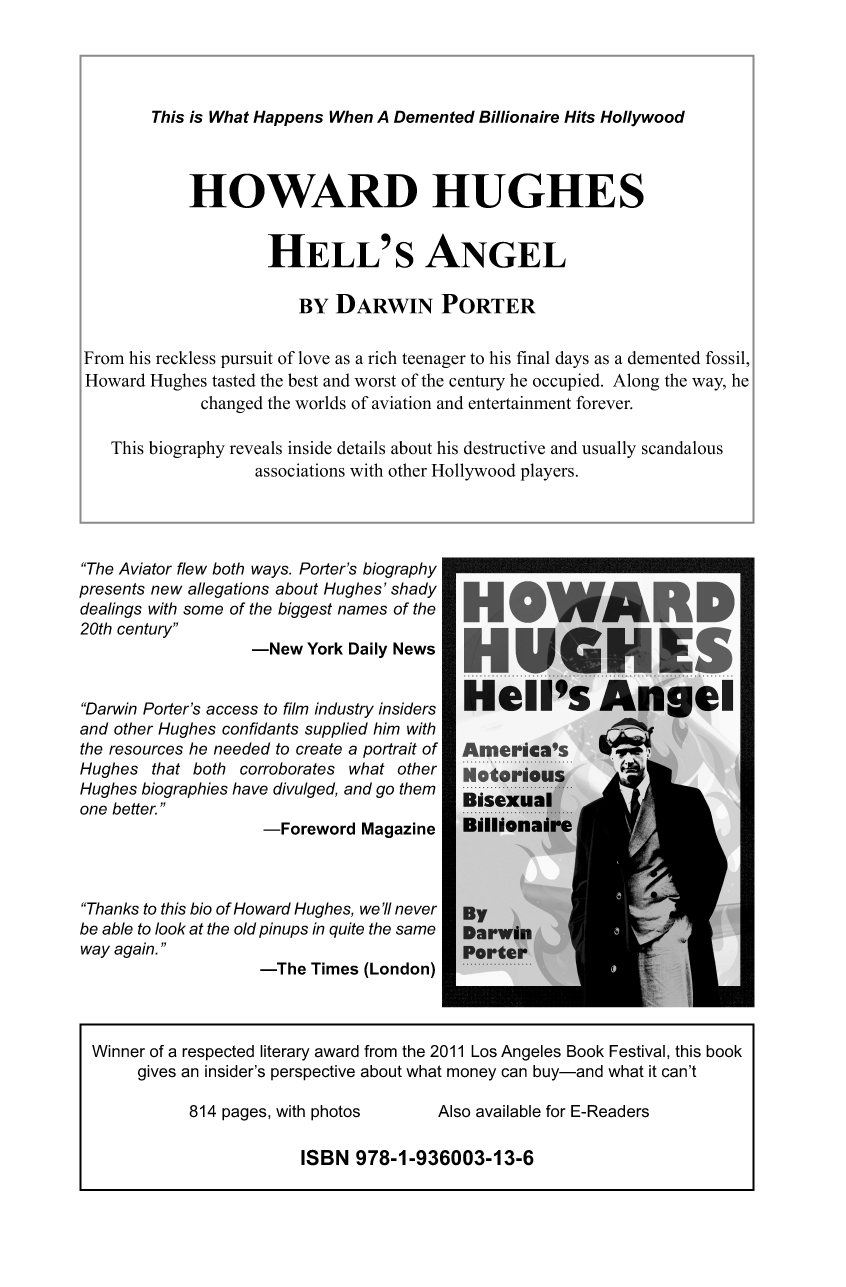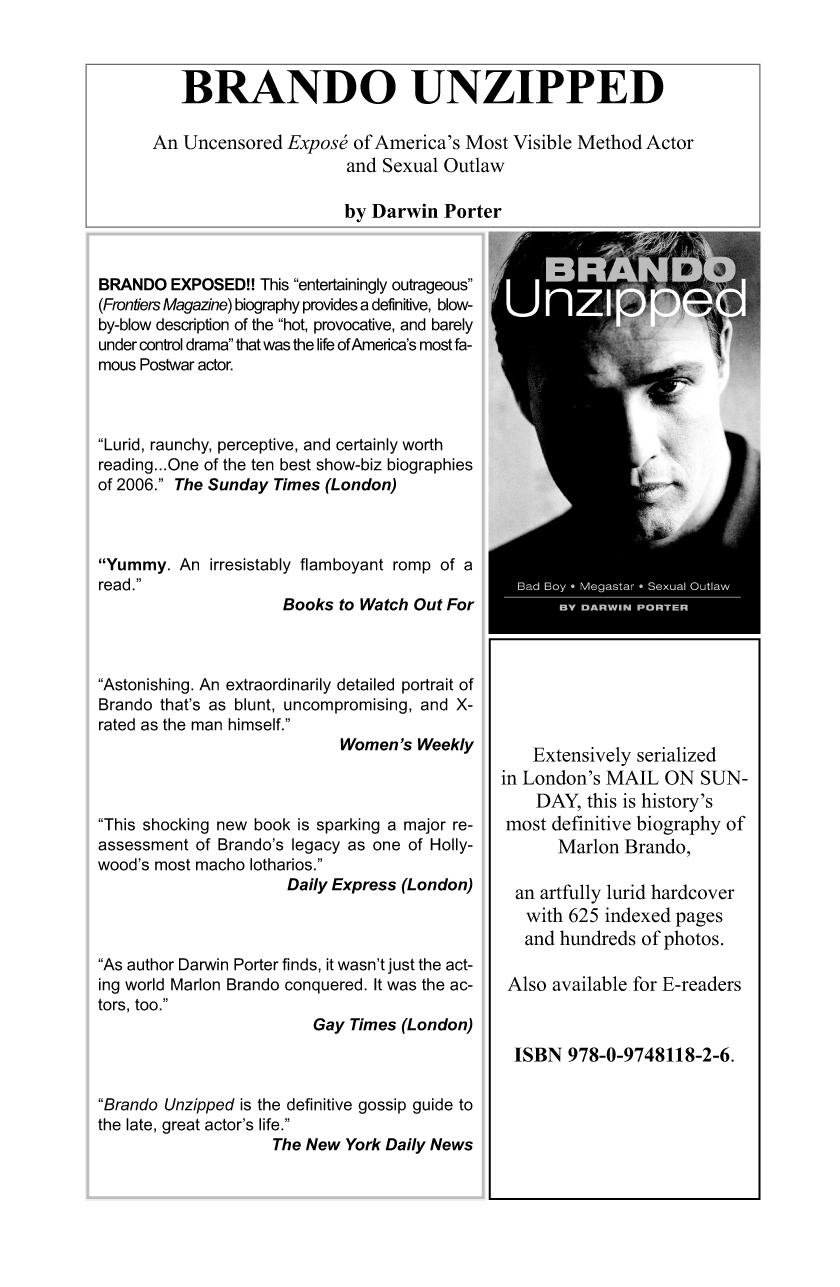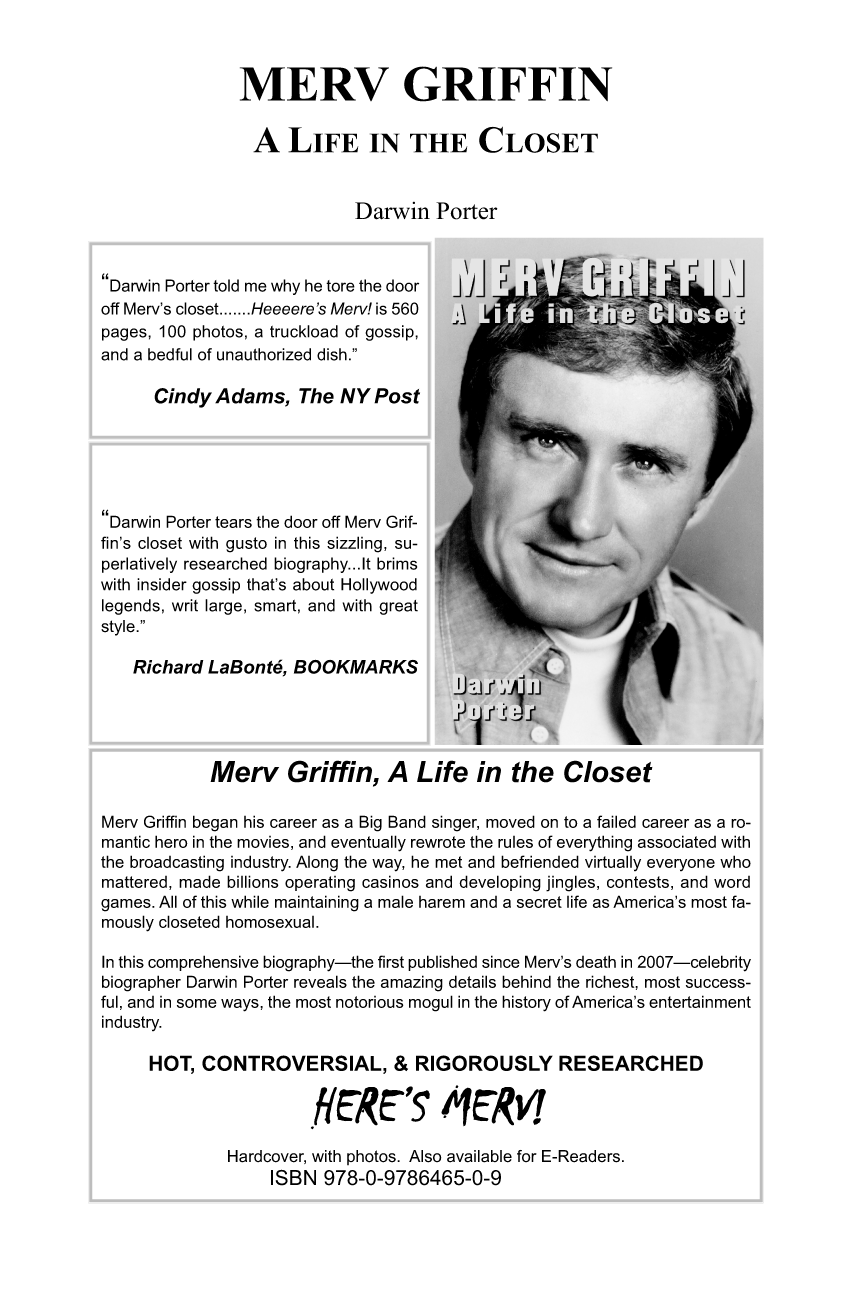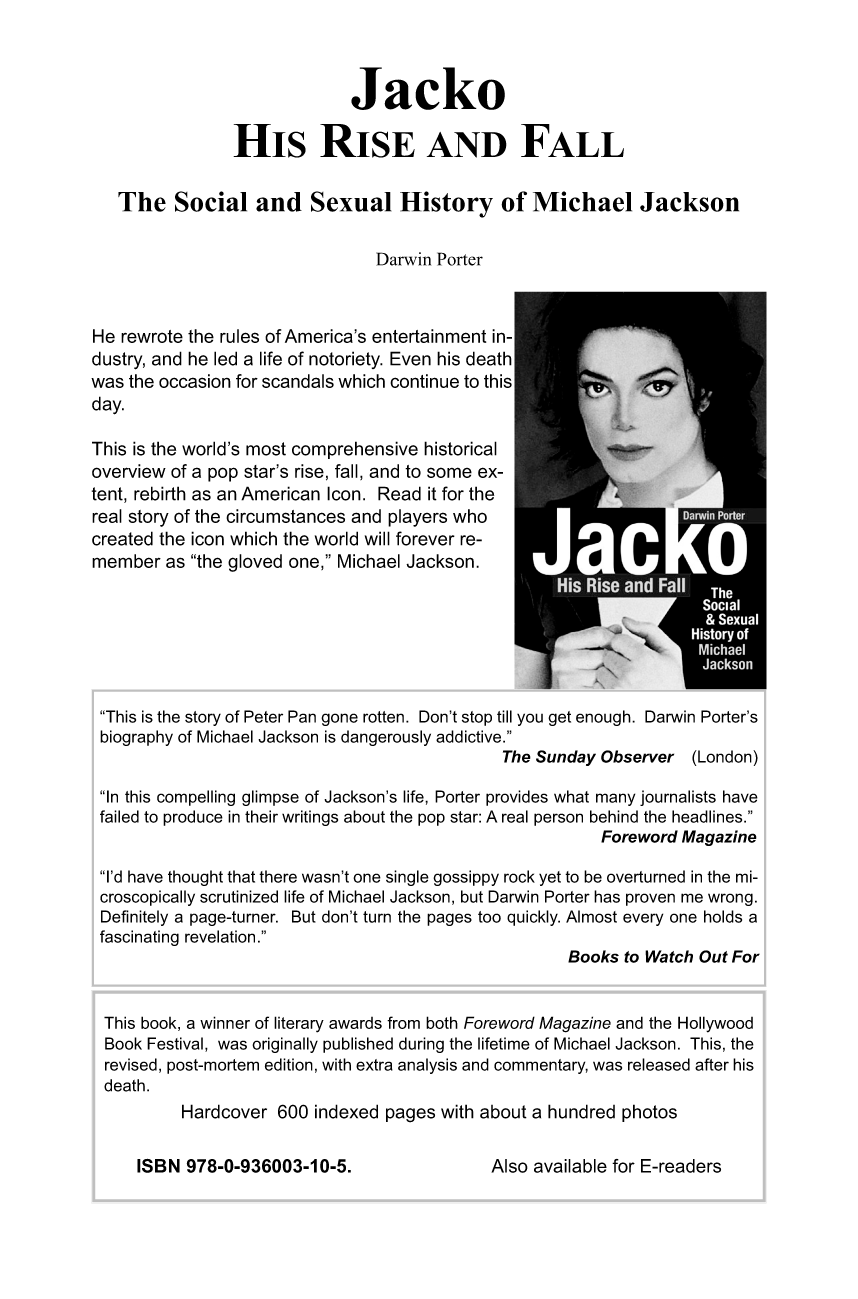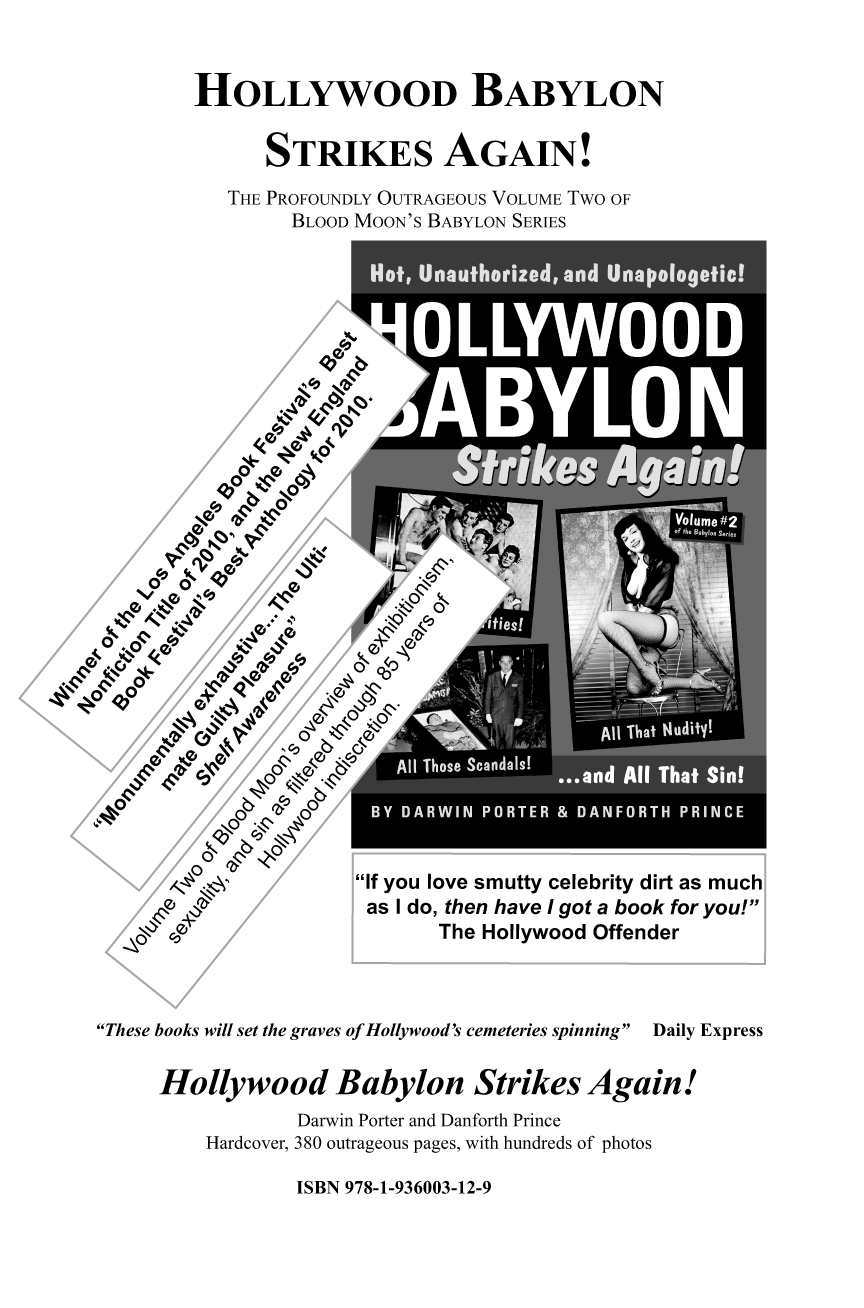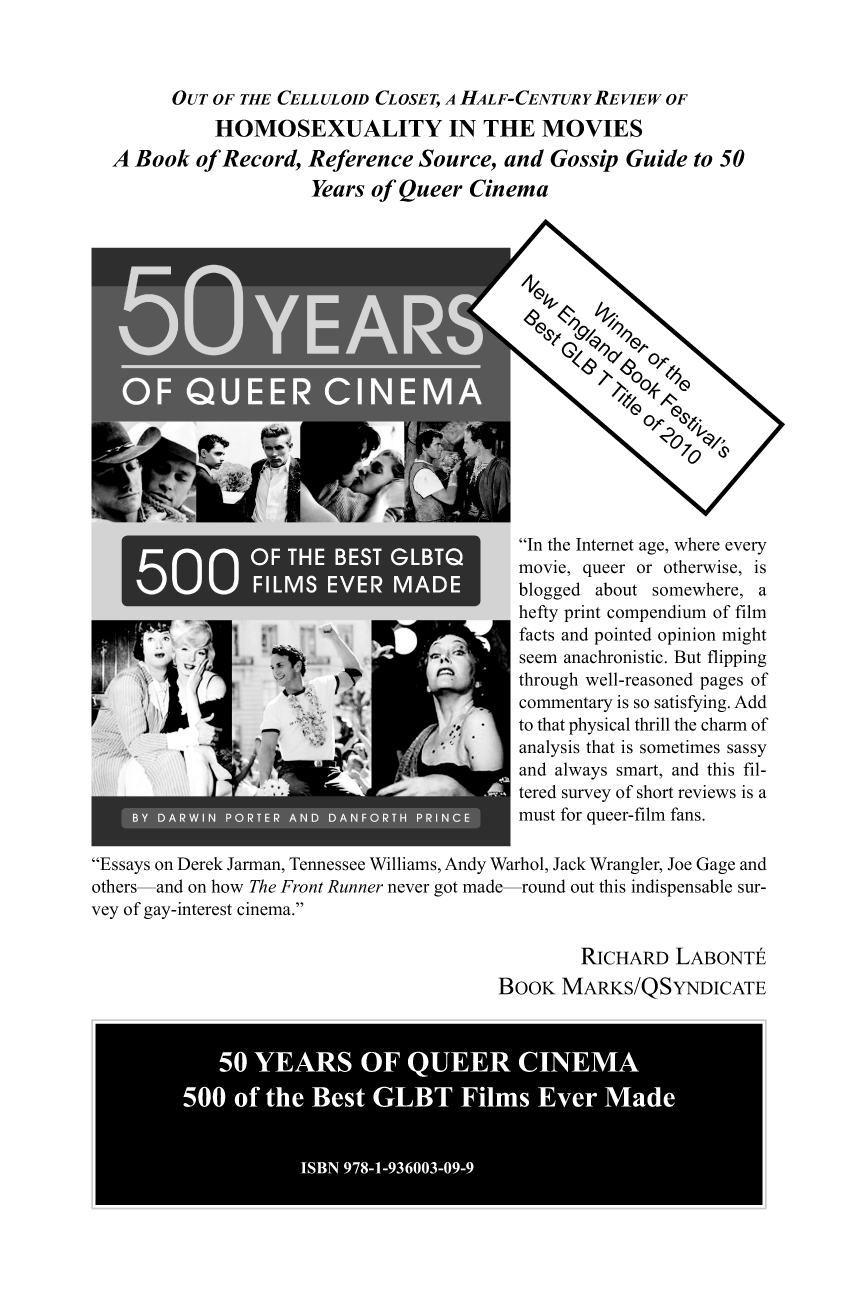ABOUT THE AUTHOR
Darwin Porter has been fascinated by the FBI ever since his widowed mother began dating a G-Man who presented him with a Junior G-Man badge in the mid 1940s.
Porter never became an FBI agent himself, but turned his investigative skills into reporting.
Over the years, he gathered stories from dozens of Hollywood celebrities and FBI men, many in retirement in Florida. Sometimes, they spoke freely about their experiences in the FBI. Many others, however, preferred to keep their secrets, and those of J. Edgar Hoover and Clyde Tolson, to themselves.
Today, Porter is one of the worlds leading celebrity biographers, having written books on such diverse figures as Katharine Hepburn, Paul Newman, Howard Hughes, Marlon Brando, Humphrey Bogart, Michael Jackson, Steve McQueen, the Kennedys, and Frank Sinatra.
He is also the co-author of the popular Hollywood Babylon series, and is also the co-author of Damn You, Scarlett OHara, which exposed the complicated and deeply anguished private lives of Laurence Olivier and Vivien Leigh.
Currently, Porter is working on Marilyn at Rainbows End, destined for a publication during the Spring of 2012 and devoted to exploring the mysterious final years in the life of blonde sex goddess Marilyn Monroe.
When not traveling, Porter lives in New York City.
CHAPTER ONE
In the predawn hours of January 1, 1895, as revelers were returning from their New Years parties, a cold, bitter, and windy day had been forecast for Pipetown, a residential community in the shadow of the Capitol building in Washington, D.C.
The cobble-covered streets, shaded in summer by elms, would be too heavy with snow for horse-drawn carriages. Gas lamps at the Grant-era house at 413 Seward Square witnessed the birth of a new baby who one day would strike fear throughout the city. The innocent-looking infant was John Edgar Hoover.
His older sister, Lillian Hoover, remembered that the baby boy entered the world kicking, screaming, and crying. He was immediately hungry. In addition to Lillian, Hoover had an older brother, Dickerson Hoover, Jr.
Hoovers mother was Annie Marie Scheitlin, who had descended from Swiss mercenaries. His father, Dickerson Naylor Hoover, traced his ancestors back to Germany and England.
Although J. Edgar became a legend in modern America, in the year of his birth, Queen Victoria still presided over a vast empire and was the Empress of India. The Dalton gang still terrorized the West, and the czar ruled in Moscow. Germany still had an emperor. In North Carolina, the Wright Brothers would not fly their airplane for another eight years. In 1909, young Hoover, or so he claimed, would be the first person in Washington to shake Orville Wrights hand.
The United States flag needed only forty-five stars to designate its member states. As J. Edgar came into the world, there was talk of waging war against Britain over Latin American territories. Only four years before Hoover was born, white men had ended their war against the Indians at Wounded Knee.
From the beginning, J. Edgar became a mamas boy and would remain so until her death at the age of seventy-eight in 1938. He was forty-three years old at the time and had always lived with her.
She called him a late bloomer, or the runt of my litter, yet remained completely devoted to him, living her life for her son.
As a boy, he was always shorter than most of his classmates, although he did grow to the height of 57. On documents he listed his height as under 6 feet.
J. Edgar was devoted to his mother, but she was a strict disciplinarian. She punished wrongdoing like a military army sergeant cracking down on a young recruit. Until he was twelve years old, J. Edgar had to strip down in front of his mother to receive a bare-butt paddling. As he grew older, the shy boy tried to conceal his genitals from her.
Mother Hoover, as she would be called by FBI agents in her future, could have posed for that portrait of Whistlers Mother.
J. Edgar grew up with the puritan ethic that characterized many of Americas values at the dawn of the 20th century. Like many other boys of his day, He found inspiration in Horatio Alger stories. Actually, his favorite reading material was dime-store detective novels. For a while he wanted to be a minister, which would later earn him the appellation of an Elmer Gantry in lawmans clothes.


